Warning! SPOILERS ahead for The Tender Bar!
The Tender Bar is a heartwarming coming-of-age story about a young boy’s journey to adulthood, but The Tender Bar’s ending has left many viewers with unanswered questions. Based on the memoir by the same name and directed by Batman and Robin actor George Clooney, The Tender Bar covers a lot of ground as it follows JR’s growing up, spanning over a decade from the mid-1970s to the 1980s. The Tender Bar’s ending shows JR setting off to live his dreams, but how he got there and what it means could use some explaining.
The Tender Bar tells the story of JR, who moves in with his grandfather and the rest of his extended family after his father abandons him and his mother. Guiding him along his journey to manhood is his Uncle Charlie, a self-educated man who owns and runs a local bar called The Dickens. The story splits its time between young JR, age 9 (played by Daniel Ranieri), as he grapples with his absentee father and his mother’s pressure to make something of himself; and JR (the X-Men movie franchise’s recast Cyclops, Tye Sheridan) as a young man, setting off for Yale.
Dealing with big issues like alcoholism, the rules of manhood, and emotional abuse, The Tender Bar says a lot from under the guise of a nostalgic, feel-good film. However, The Tender Bar’s ending leaves many lingering questions as JR drives off into the sunset to start making something of himself. Here’s what happens in The Tender Bar’s ending and what it all means.
What Happens at the End of The Tender Bar
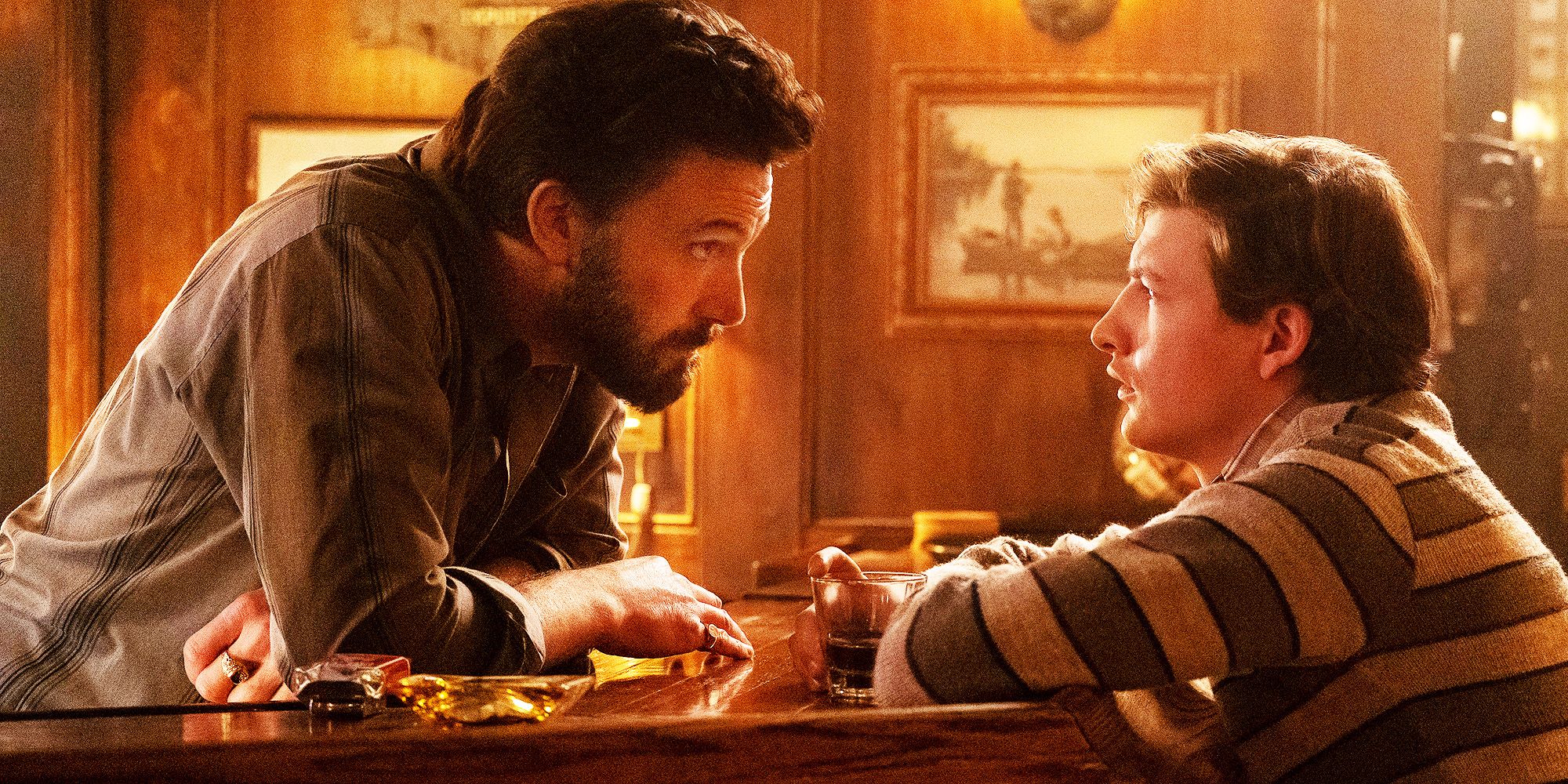
Having graduated from Yale, JR returns to his grandfather’s house and slips into a life of drinking as a regular at his Uncle Charlie’s bar. JR gets a job as a copyboy at the New York Times to impress his love interest, Sidney, until being passed over for a job as a journalist. He slips further into alcohol abuse after finding out Sidney is marrying someone else.
When Uncle Charlie (The Last Duel’s Ben Affleck) gets hospitalized, JR asks him if he is like his father and is unsettled when Uncle Charlie suggests JR may have a drinking problem like The Voice. JR seeks his father out, coming to terms with his father’s alcoholism, and realizes that his father will likely never change. He finally confronts his father and has him arrested after an incident of domestic abuse. JR then returns to his family to get his life in order. He decides to move to Manhattan with his old friend Wesley and The Tender Bar’s ending shows Uncle Charlie, JR’s true father-figure, gifting him his beloved car, completing JR’s journey to manhood. JR drives away from his hometown to a voiceover that eludes to JR beginning to write his memoir.
Why JR’s Father Is Called “The Voice”
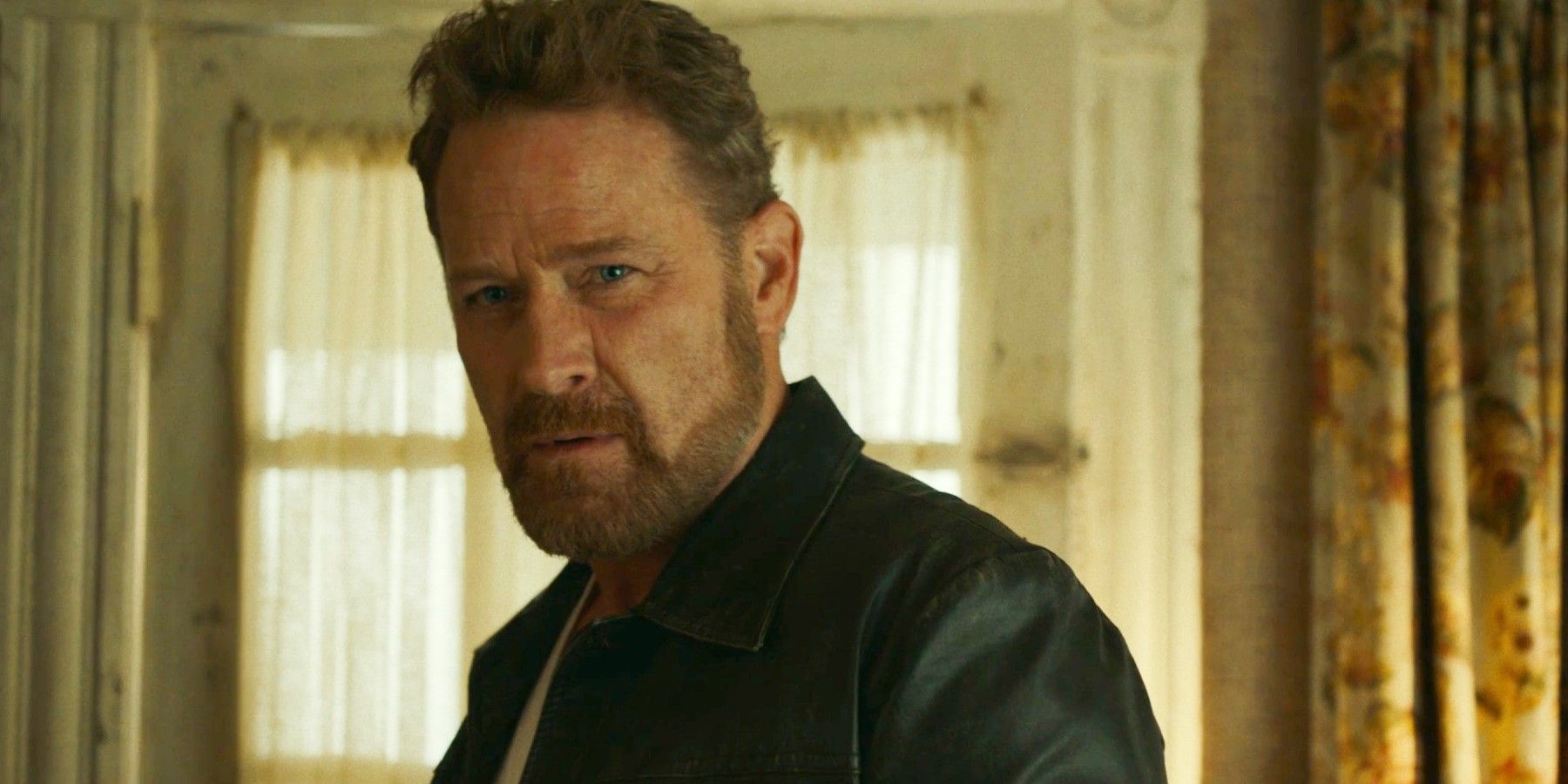
JR’s father (The Purge’s Max Martini) is a radio personality in The Tender Bar and is referred to in the film as “The Voice,” however, there is a deeper meaning behind the nickname. As JR’s father is largely absent from his life, JR spends much of his youth seeking him through any means possible—even a radio. Over the course of the film, young JR “talks” to his father through the radio, listening to his father’s voice over the airwaves. Near the end of the film, however, when JR confronts his father, he tells The Voice to stop talking in a scene that symbolizes that JR is no longer listening to—and yearning for—his father’s advice and presence in his life.
What Happens With Sidney
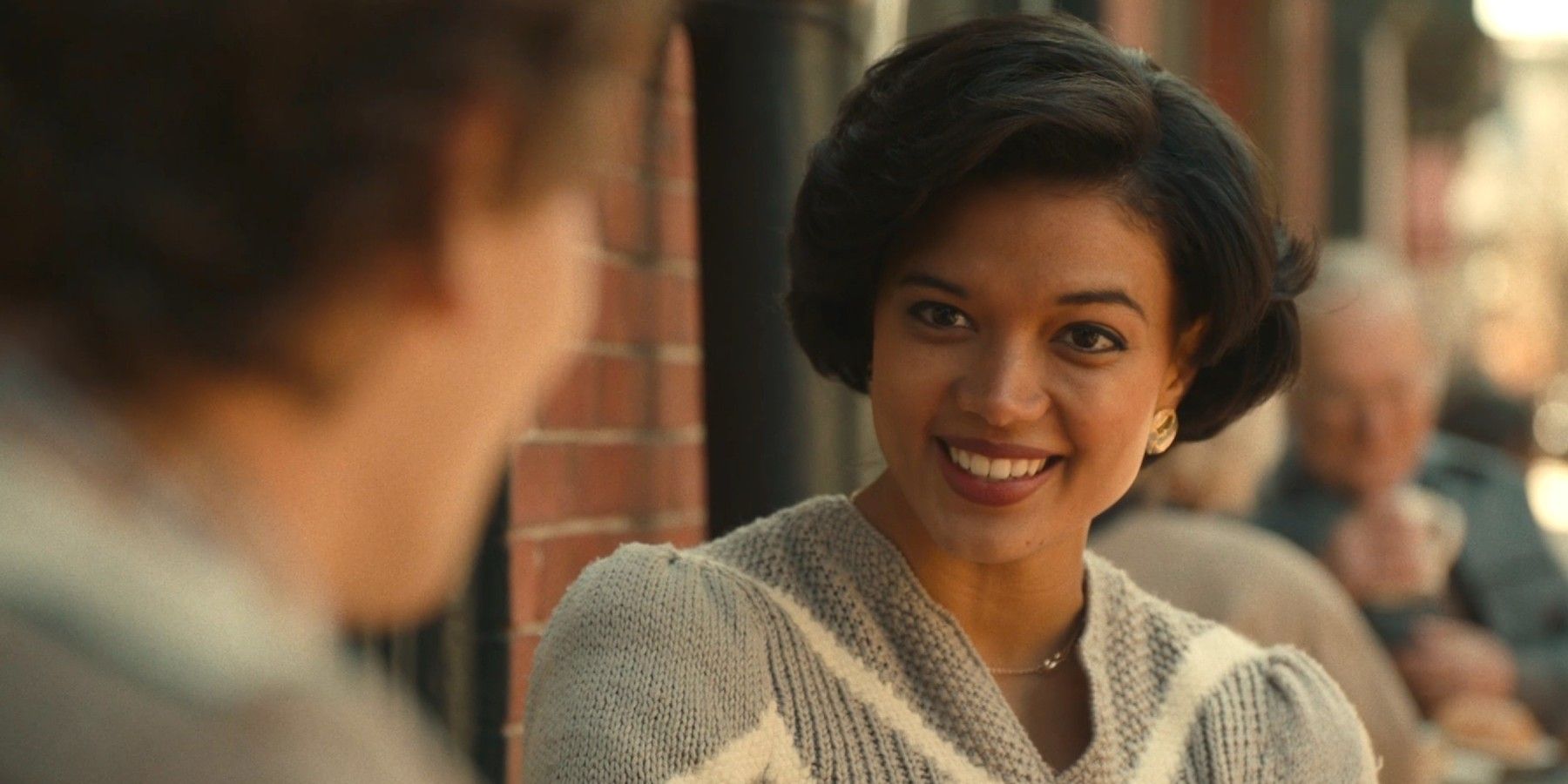
JR spends much of The Tender Bar chasing a girl he meets at Yale, Sidney, whose treatment of JR greatly resembles that of his father. Sidney abuses JR throughout The Tender Bar, only carrying on a relationship with JR when it suits her and then discards him. JR’s unresolved issues with his father keep him perpetually at her beck-and-call, desperately seeking to prove that he is worthy of commitment and love. In The Tender Bar’s ending, JR and Sidney’s relationship is never dissolved, but when JR finally confronts his father’s abusive behavior, JR’s relationship with Sidney is presumably over as he has recognized and resolved the root of the issue.
Does JR Write His Memoir?
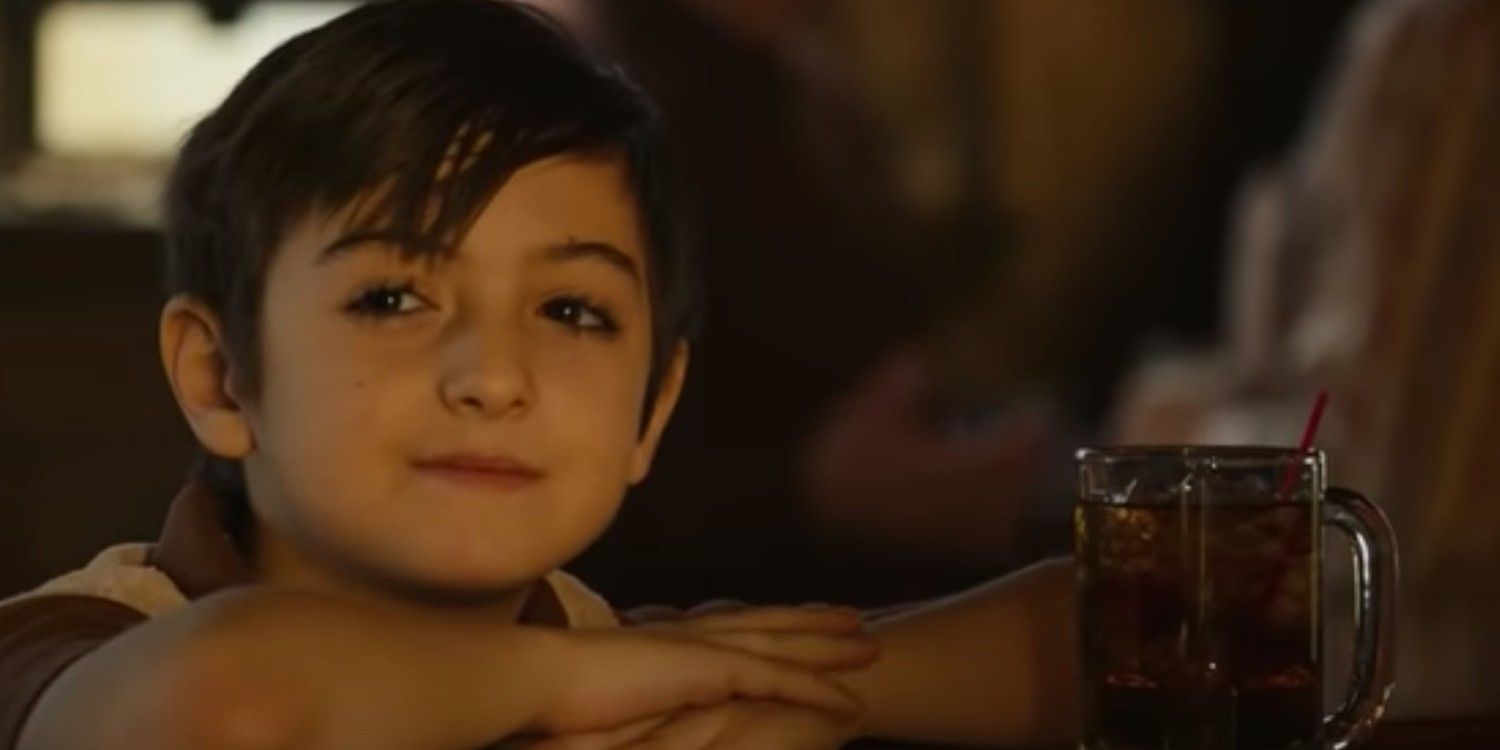
After JR is refused the journalist position at the New York Times, he appears elated—the audience’s first clue that JR feels free to pursue his dream of writing a book. In fact, The Tender Bar is based on the memoir written by the real-life JR—writer J. R. Moehringer—so it can be assumed JR wrote his memoir. However, life after Yale was a bit different for the real J. R. After graduating from Yale in 1986, the real J. R. worked at several news publications before becoming a journalist at the L. A. Times in 1994. As his memoir, The Tender Bar, was not published until 2005, the real J. R. had a long career in news before completing his memoir.
The Real Meaning of The Tender Bar Ending
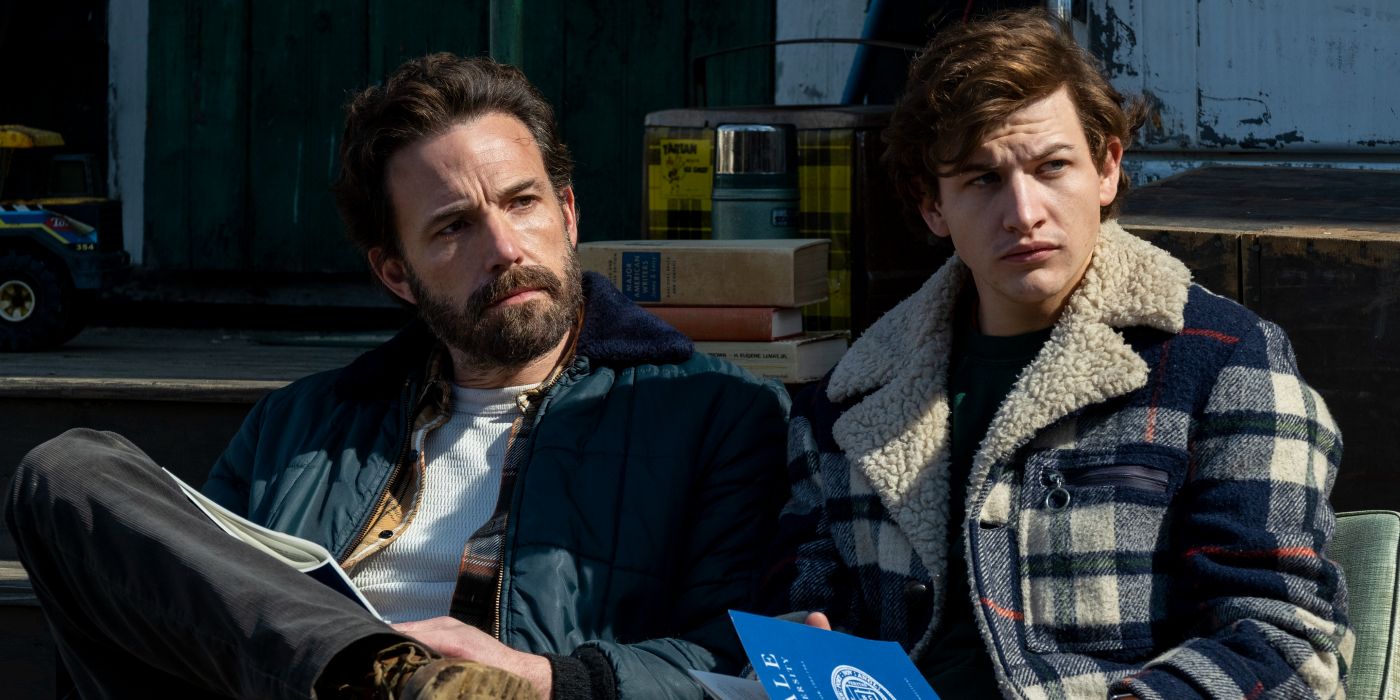
Primarily a coming-of-age story, The Tender Bar focuses on JR overcoming the emotional abuse that stunts his personal growth and relationships until The Tender Bar’s ending. In coming to terms with who his father really is, JR’s character in The Tender Bar is freed by the realization that the abuse is not, and has never been, about him. He extricates himself from the similarly abusive relationship he has with Sidney and finally begins to focus on who he is and what he wants to accomplish, rather than who he is in relation to how other people treat him.
Through Uncle Charlie’s wisdom and love for literature, The Tender Bar’s ending also infers the importance of education, though not necessarily through the Ivy-League, mainstream educational system. Uncle Charlie is a self-educated man who also stands in stark contrast to his father, JR’s grandfather (played by Back To The Future’s beloved Doc, Christopher Lloyd), who graduated from Dartmouth and has done little since. The Tender Bar seems to point out that knowledge and wisdom are an accomplishment spurred by personal perseverance rather than a system.
Finally, The Tender Bar’s ending shows that paternal role models can come from other sources. By The Tender Bar’s ending, JR is not the only hero, but Uncle Charlie as well, having stepped into the role of father and helped to shape the man JR becomes. This is, by far, the most touching aspect of the film, with Uncle Charlie providing JR a physical escape from his past when he gives him his car in The Tender Bar’s ending, along with his affection acting as a psychological escape throughout JR’s young life.




